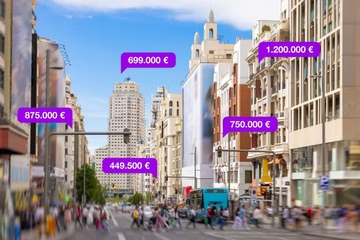Bosnia, Serbia to consider countermeasures to Kosovo's tariffs

Unless Kosovo abolishes tariffs on Bosnian and Serbian goods until the Western Balkan leaders' summit in Paris, on July 1, the two countries will consider introducing countermeasures, Bosnia's Foreign Trade Minister Mirko Sarovic and Serbia's Trade Minister Rasim Ljajic concluded, Monday, in Sarajevo.
Oglas
In the first half of 2019, Bosnia exported €27 million of goods less than in the same period last year, which is a drop in exports of 97 percent, Sarovic said. He exemplified this situation with the fact that Bosnia exported only €500,000 worth of goods in the first quarter of this year.
Ljajic noted that from the moment Kosovo introduced these tariffs on November 21 until May 21, Serbia exported €189.5 million of goods less than during the same period last year, representing an 80 percent drop of their exports.
This, practically, means that Serbia loses €1 million every day, he added.
Oglas
The two concluded that Kosovars are also suffering as retail prices there also rose by 5.3 percent, Kosovo's foreign trade deficit rose by 5.4 and imports of goods increased by 6.4 percent.
In November 2018, Pristina authorities introduced protective measures on all products coming from Serbia and Bosnia.
Tariffs were raised from 10 to 100 percent in less than a month after their first introduction.
The two ministers also emphasised that tariffs caused an almost complete halt of all regional initiatives, causing political damage to the normalisation of regional relations.
Oglas
On the other hand, they said they would request the European Commission to urgently work on the reform of the Central European Free Trade Association (CEFTA) because it "de facto does not exist in the shape it was formed 13 years ago."
As of July 1, 2013, the CEFTA member states are Albania, Bosnia and Herzegovina, Macedonia, Moldova, Montenegro, Serbia and UNMIK (on behalf of Kosovo).
The Association's former member states are Bulgaria, Croatia, Czech Republic, Hungary, Poland, Romania, Slovakia and Slovenia. Their CEFTA memberships ended when they became EU member states.
Sarovic and Ljajic called for a higher degree of economic integration in the Balkans, which implies the creation of a common economic space without barriers and complicated procedures hindering the free flow of goods, people, services and capital.
Kakvo je tvoje mišljenje o ovome?
Učestvuj u diskusiji ili pročitaj komentare
Oglas
Kakvo je tvoje mišljenje o ovome?
Učestvuj u diskusiji ili pročitaj komentare
Oglas





 Srbija
Srbija
 Hrvatska
Hrvatska
 Slovenija
Slovenija



























































